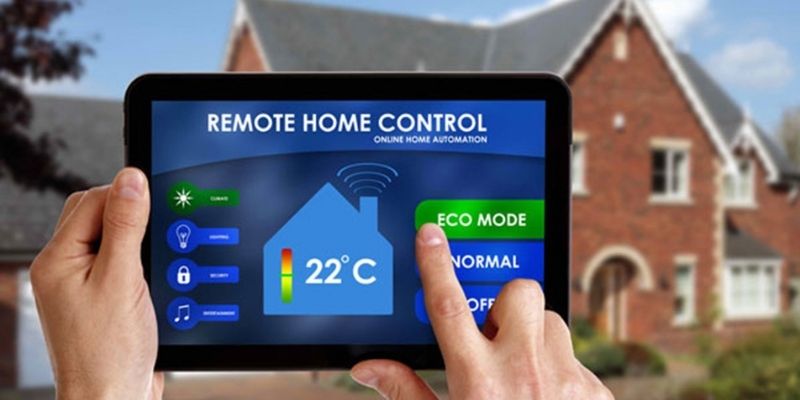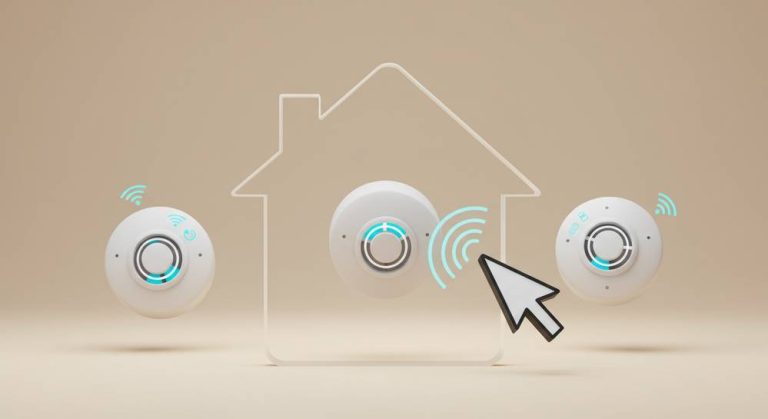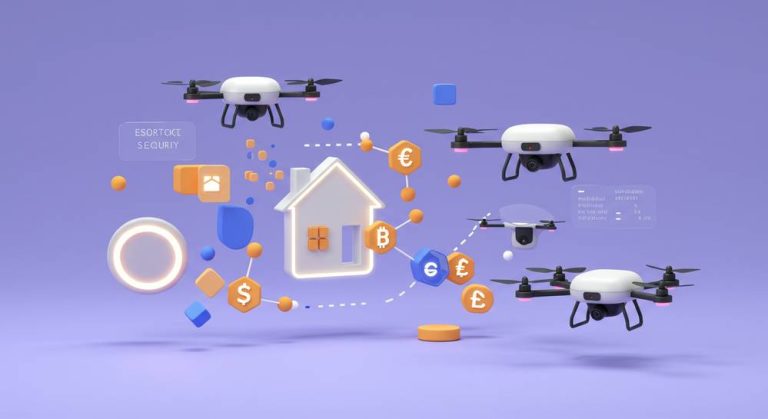The smart home AI project landscape in 2025 is thriving, with the Google Nest Hub Max leading as a versatile hub for intelligent living. This analysis explores five standout smart home AI projects – Google Nest Hub Max, Ecobee AI Thermostat X, Ring AI Pro Security System, Philips Hue AI+ Lighting, and Samsung Family Hub 2025 – each leveraging AI to enhance convenience, security, and sustainability, transforming how we interact with our spaces.
Contents
Google Nest Hub Max

The Google Nest Hub Max is a flagship smart home AI project, serving as a central command center for connected homes in 2025. Priced at $229, this 10-inch smart display combines Google Assistant’s AI with a vibrant touchscreen, stereo speakers, and a 6.5MP camera, enabling voice and visual control of compatible devices. Its smart home AI project capabilities are rooted in machine learning and natural language processing, allowing it to understand complex commands like “Prepare for movie night,” which dims lights, adjusts the thermostat, and streams content.
The Nest Hub Max excels in device integration, supporting Matter and Thread protocols for seamless connectivity with brands like Philips Hue and Ecobee. Its AI-driven Home View interface provides a dashboard to monitor cameras, control locks, or tweak lighting, all customizable via the Google Home app. The camera’s facial recognition identifies household members, tailoring responses – like displaying personal calendars – while motion detection doubles as a security feature, sending alerts for unusual activity.
In Vietnam, where compact homes dominate, its space-saving design and multilingual support (including Vietnamese) make it a popular smart home AI project. The Nest Hub Max’s ability to learn routines, such as activating morning lights based on your alarm, underscores its role as a dynamic, user-focused smart home AI project.
Ecobee AI Thermostat X
The Ecobee AI Thermostat X, priced at $269, is a groundbreaking smart home AI project designed for energy efficiency and personalized comfort. Launched in 2025, it builds on Ecobee’s legacy with advanced AI that learns heating and cooling patterns, optimizing HVAC performance to save up to 22% on energy bills. Equipped with a 4-inch touchscreen, built-in Alexa, and air quality sensors, it monitors CO2 and VOC levels, alerting users to open windows or activate purifiers, ideal for Vietnam’s urban pollution challenges.
This smart home AI project uses machine learning to analyze occupancy, weather, and user preferences, adjusting temperatures proactively. For instance, it might lower cooling during rainy afternoons, leveraging local weather data. Its SmartSensor, included with purchase, detects hot or cold spots, ensuring consistent comfort across rooms.
Integration with Google Nest Hub Max allows voice commands like “Set bedroom to 22°C,” while Matter support ensures compatibility with diverse ecosystems. The Eco+ feature suggests schedule tweaks, such as pre-heating before you arrive home, making the Ecobee AI Thermostat X a standout smart home AI project for eco-conscious households.
Ring AI Pro Security System

The Ring AI Pro Security System, priced at $399, redefines home safety as a cutting-edge smart home AI project in 2025. This comprehensive kit includes a base station, 4K cameras with night vision, motion sensors, and a smart doorbell, all powered by AI-driven computer vision. The system’s ability to recognize faces, vehicles, and package deliveries—reducing false alerts by 92%—sets it apart. It integrates with the Google Nest Hub Max, streaming live feeds to its display or sending alerts via the Google Home app.
The smart home AI project leverages predictive algorithms to detect anomalies, such as a stranger approaching at odd hours, triggering lights or sirens. Its two-way audio lets users communicate remotely, perfect for greeting visitors or deterring intruders. In Vietnam, where urban security is a priority, the system’s encrypted cloud storage and optional local processing enhance privacy. The Ring AI Pro’s ability to learn user patterns, like ignoring regular delivery times, ensures efficiency, while Matter compatibility makes it a versatile smart home AI project for seamless smart home integration.
Philips Hue AI+ Lighting
Philips Hue AI+ Lighting, starting at $199 for a starter kit, is a transformative smart home AI project that elevates ambiance and efficiency in 2025. This advanced iteration introduces an AI assistant, Hue Genie, which responds to voice or text commands to create dynamic lighting scenes, such as “Set a sunset vibe.” Supporting 16 million colors and 800 lumens, the bulbs sync with entertainment, matching hues to music or movies via the Hue Sync app, now compatible with LG TVs.
The smart home AI project uses machine learning to adapt lighting based on time, occupancy, or mood, detected through integrated sensors. For example, it might brighten lights for morning focus or dim them for evening relaxation. Integration with Google Nest Hub Max allows control via voice or app, while Matter and Zigbee ensure broad compatibility. In Vietnam, where energy costs are rising, its AI optimizes brightness to save up to 15% on electricity. The Hue AI+’s smoke alarm detection, which flashes lights during emergencies, adds a safety layer, making it a versatile smart home AI project for modern homes.
Samsung Family Hub 2025

The Samsung Family Hub 2025, priced at $3,999, is a premium smart home AI project that reimagines the kitchen as a connected hub. This 32-inch touchscreen refrigerator features AI-driven inventory management, scanning groceries to track expiration dates and suggest recipes based on contents. Its Bixby-powered voice assistant integrates with the Google Nest Hub Max, allowing commands like “Show fridge contents” on the Hub’s display.
The smart home AI project excels in personalization, learning family preferences to curate meal plans or sync shopping lists with local delivery apps, a boon in Vietnam’s bustling cities. Its 360-degree cameras let users peek inside remotely, reducing food waste by 10%, per 2025 studies. Beyond the kitchen, it controls other smart devices, like adjusting Philips Hue lights or checking Ring cameras, via the SmartThings platform. The Family Hub’s AI also optimizes energy use, running cooling cycles during off-peak hours, making it a sustainable and innovative smart home AI project for tech-savvy households.
To Home Gadget Digest, the smart home AI project ecosystem in 2025, exemplified by the Google Nest Hub Max and its integration with Ecobee AI Thermostat X, Ring AI Pro Security System, Philips Hue AI+ Lighting, and Samsung Family Hub 2025, is reshaping how we live.


















+ There are no comments
Add yours